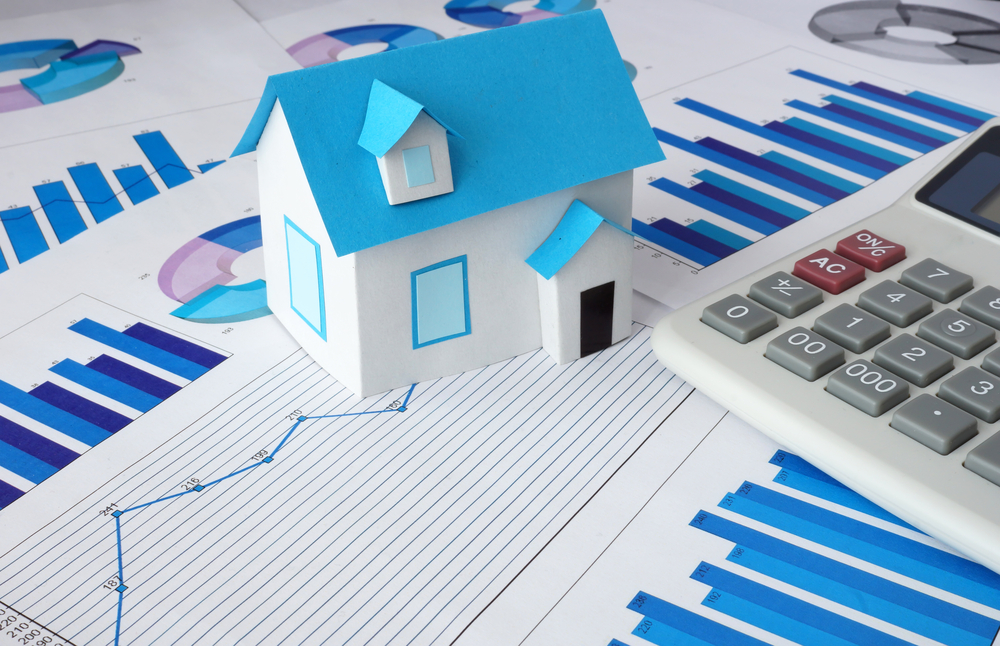The real estate market can feel like a vast ocean, teeming with opportunities and challenges. Whether you’re looking to buy your dream home or sell a cherished property, navigating through this landscape requires knowledge and strategy. With fluctuating prices and varying trends, it’s essential to arm yourself with the right tools for success.
Understanding the current state of the market is crucial for making informed decisions. As buyers seek their perfect match and sellers aim to attract potential buyers, having a solid grasp on how the market functions will serve as your compass. Ready to dive in? Let’s explore some essential tips that will help you navigate the real estate waters with confidence!
Understanding the Current Real Estate Market
The real estate market is constantly evolving. Factors like interest rates, economic conditions, and local trends can impact buying and selling dynamics. It’s vital to stay informed about these changes.
Understanding your local market is equally important. Research recent sales in your area to gauge pricing strategies or identify emerging neighborhoods. This knowledge will empower you during negotiations.
Keep an eye on broader economic indicators too. Employment rates, inflation, and consumer confidence all play a role in shaping the market landscape.
Online platforms provide valuable insights as well. Websites dedicated to property listings often feature analytics that highlight average days on the market or price fluctuations over time.
By grasping these elements, you’re better equipped for making sound investment decisions whether you’re buying your first home or listing a property for sale. Knowledge truly is power in this competitive arena!
The Importance of Research and Preparation
When navigating the real estate market, research and preparation are your strongest allies. Understanding local trends can shape your decisions significantly.
Delving into neighborhood statistics reveals critical insights about property values and potential growth areas. This knowledge empowers you as a buyer or seller, helping to set realistic expectations.
Preparation goes beyond numbers; it involves getting familiar with market conditions. Knowing whether it’s a buyer’s or seller’s market can dictate your approach.
Additionally, gathering information on schools, amenities, and transportation enhances your perspective. These factors affect demand and ultimately influence pricing strategies.
Invest time in understanding financing options as well. Different mortgage types come with various terms that could impact long-term affordability.
The more prepared you are ahead of time, the less overwhelmed you’ll feel during crucial moments in the transaction process. It’s all about making informed choices for successful outcomes.

Tips for Buying a Property:
Buying a property can be an exciting yet daunting journey. Setting a budget is your first crucial step. Calculate not only the purchase price but also additional expenses like taxes, insurance, and maintenance.
Next, consider working with a real estate agent. An experienced professional knows the local market well and can help you find hidden gems that fit your needs.
Don’t overlook property inspections. This process helps identify potential issues before making a commitment. A thorough inspection can save you future headaches and unexpected costs.
Additionally, stay flexible during negotiations. The real estate landscape often shifts quickly; being open to compromise may lead to better opportunities for both parties involved in the transaction. Keep these tips in mind as you navigate through this important investment decision.
A. Setting a Budget
Setting a budget is one of the first steps in navigating the real estate market. It helps you define your financial boundaries and keeps your search focused.
Start by assessing your finances. Take a close look at your income, savings, and expenses. This will help you determine how much you can afford for a down payment and monthly mortgage payments.
Don’t forget to include additional costs such as property taxes, insurance, maintenance, and closing fees. These can add up quickly if you’re not prepared.
Once you’ve established a realistic budget, stick to it. It’s easy to get carried away when viewing homes that spark interest or excitement. Remember that staying within your limits protects you from future financial stress.
Consider getting pre-approved for a mortgage. This gives you confidence when making offers while ensuring you’re shopping within an appropriate price range.
B. Working with a Real Estate Agent
A knowledgeable real estate agent can be a game changer in your property journey. They bring valuable insights about market trends and neighborhood dynamics that you might not find online.
Choose an agent who understands your specific needs. Whether you’re buying or selling, their expertise will save you time and effort. They navigate the complexities of paperwork, contracts, and negotiations on your behalf.
Communication is key. Make sure you feel comfortable discussing your preferences openly with them. A good agent listens actively and tailors their approach to fit your goals.
Don’t shy away from asking questions throughout the process. The more informed you are, the smoother everything will go.
Also, leverage their network for referrals to trusted inspectors or mortgage brokers. These connections can lead to better deals and streamline transactions significantly.
C. Conducting Property Inspections
Conducting property inspections is a crucial step in the home-buying process. It allows you to uncover potential issues that could become costly headaches later on.
Start by hiring a qualified inspector who has experience in evaluating residential properties. They will provide an unbiased assessment of the home’s condition, covering everything from structural integrity to electrical systems.
Be present during the inspection if possible. This gives you a chance to ask questions and gain insights directly from the professional’s findings. Pay attention not only to major concerns but also minor issues that might indicate larger problems down the line.
Don’t rush through this step; it’s your opportunity for due diligence. A thorough inspection can save you thousands of dollars and help negotiate better terms with sellers based on any repairs needed before finalizing your purchase.
Tips for Selling a Property:
Setting the right price is crucial when selling a property. Research your local market to identify comparable homes and their sale prices. This will help you determine a competitive yet attractive listing price.
Next, staging your home can make a significant difference in how potential buyers perceive it. Clear out clutter and consider rearranging furniture to create an inviting atmosphere. A well-staged home allows buyers to envision themselves living there.
Marketing your property effectively is key to reaching interested buyers. Utilize online platforms, social media, and traditional advertising methods like flyers or open houses. High-quality photos can also showcase your property’s best features.
Don’t underestimate the power of curb appeal either! First impressions matter; enhance landscaping and ensure the exterior looks inviting. These small changes can lead to quicker sales at better prices without much investment on your part.
A. Setting the Right Price
Setting the right price for your property can make or break a sale. It’s essential to strike a balance between attracting buyers and ensuring you get a fair return on your investment.
Start by researching comparable properties in your area. Look at recent sales to gauge what similar homes are fetching. This will give you valuable insight into market trends and buyer expectations.
Consider working with an experienced real estate agent who understands local nuances. They can offer professional appraisals that reflect current demand and economic factors affecting pricing.
Don’t forget to factor in the unique features of your home, such as upgrades or renovations, which might justify a higher asking price.
However, be cautious about overpricing; it could scare potential buyers away, leaving your listing stagnant. Remember, the goal is to create interest while accurately reflecting value.
B. Staging and Preparing the Property
Staging your property can significantly influence how quickly it sells. It’s all about creating a welcoming atmosphere that allows potential buyers to envision themselves living there.
Start by decluttering. Remove personal items and excess furniture to create an open space. This makes rooms feel larger and more inviting.
Next, consider fresh paint in neutral tones. A clean, light palette appeals to a broader audience and helps highlight the best features of your home.
Don’t underestimate the power of good lighting. Open curtains, replace old fixtures, and use soft bulbs for warmth.
Add some finishing touches like fresh flowers or strategically placed decor pieces. These small details can make a big difference in how buyers perceive your property’s value.

C. Marketing and Advertising Strategies
Effective marketing and advertising are crucial in attracting potential buyers. Begin by utilizing high-quality photography to showcase your property. Crisp, appealing images can significantly enhance online listings.
Leverage social media platforms to reach a broader audience. Engaging posts featuring virtual tours or behind-the-scenes content can create buzz around your property. Tailored ads on Facebook or Instagram allow you to target specific demographics.
Consider creating an informative website for the listing, complete with detailed descriptions and additional resources. This provides potential buyers with a comprehensive view of what you’re offering.
Open houses also play an essential role. Create inviting environments where visitors feel welcome to explore and ask questions freely.
Don’t overlook local real estate forums and community boards either. These venues can be goldmines for reaching interested buyers who are already invested in your area.
Frequently Asked Questions
Navigating the Real Estate Market can seem daunting, whether you’re buying or selling a property. It’s normal to have questions about the process. Here are some frequently asked queries that might help clarify your concerns.
What is the best time to buy or sell a house?
Timing can vary based on market conditions and personal circumstances. Generally, spring and summer see more activity in real estate. However, purchasing during fall or winter may lead to less competition.
How do I know if my offer is competitive?
Research comparable properties in your desired area. Look at recent sales data and understand what similar homes are selling for. Consulting with a knowledgeable real estate agent can provide insight into crafting a strong offer.
What should I look for during property inspections?
Focus on structural integrity, roofing issues, plumbing problems, and electrical systems. Don’t forget about potential pest infestations as well! A thorough inspection helps you uncover hidden issues before making a purchase.
How long does it typically take to sell a home?
The timeline varies widely depending on location and pricing strategy but generally ranges from several weeks to months. Proper preparation and marketing significantly influence how quickly your property sells.
Should I hire an agent when buying or selling?
While it’s possible to navigate transactions without an agent, their expertise proves invaluable—especially in negotiations and paperwork management. An experienced realtor understands local markets better than most buyers or sellers could alone.
Is staging really necessary when selling my home?
Yes! Staging enhances appeal by allowing potential buyers to envision themselves living there while highlighting key features of the space effectively; this often leads to quicker sales at higher prices.
These insights aim to demystify some common uncertainties individuals face while navigating the real estate market today.











